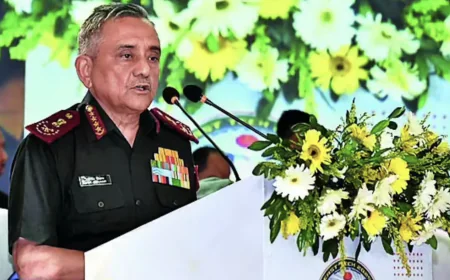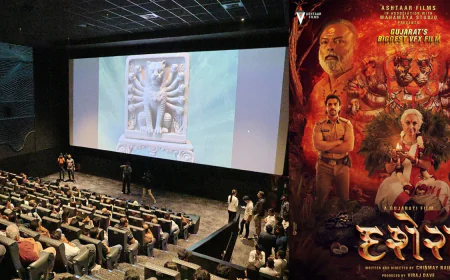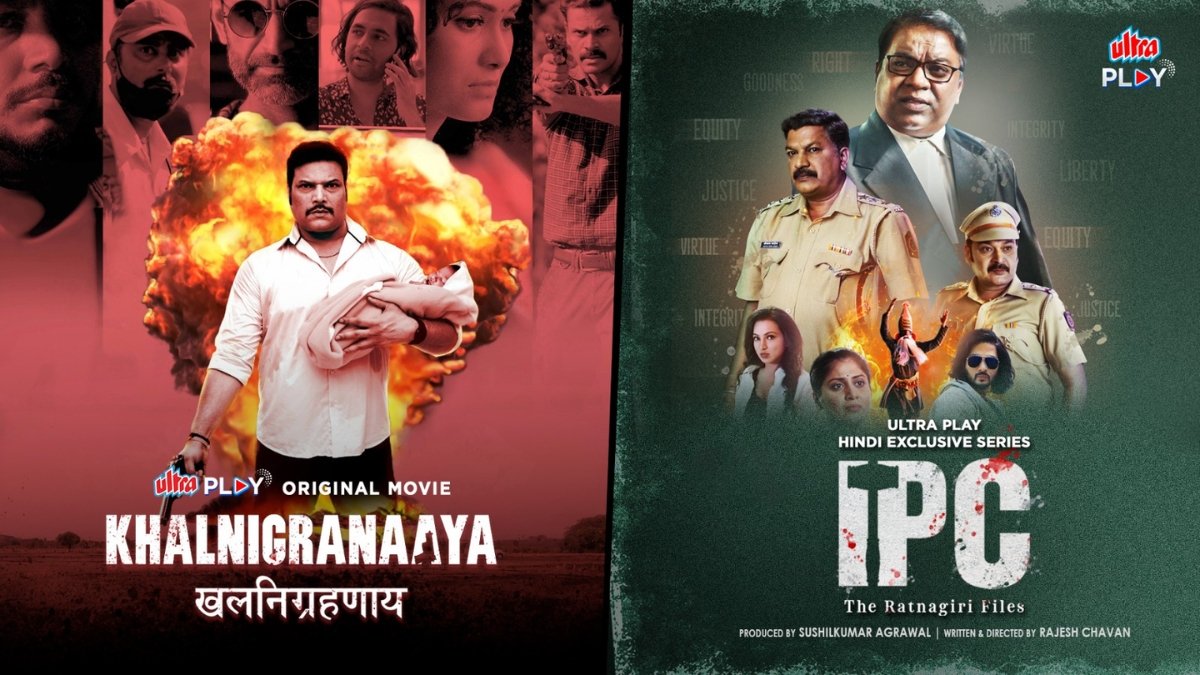HSNC University Marks One-Year Milestone of ‘Streetpreneurship 2024’, Celebrating the Enduring Impact of Street-level Innovation

Mumbai, April 22, 2025 : A year ago, the quadrangle of HSNC University’s Worli campus was transformed into a vibrant celebration of Mumbai’s street economy through Streetpreneurship 2024, an initiative that brought together the wisdom of the streets and the energy of the classroom.
Want to get your story featured as above? click here!
Want to get your story featured as above? click here!
One year on, Col. Dr. Hemlata K. Bagla, Vice Chancellor, HSNC University & Director, Niranjan Hiranandani School of Management & Real Estate (NHSMRE) offered an exclusive behind-the-scenes glimpse of the trail-blazing initiative. “Streetpreneurship was more than an event—it was a movement. Designed and conceptualised as a one-of-its-kind 25-day challenge after months of brainstorming & thoughtful planning, it empowered local street vendors through collaboration with student teams which worked side-by-side to build business visibility, operational efficiency and long-term growth strategies,” Dr. Bagla reflected with a smile.
Inspired by case studies such as the Harvard Business School visit to Mumbai’s Dabbawalas, Dr. Bagla underscored the importance of combining academic learning with real-world entrepreneurial grit.
“Street vendors are the backbone of our economy, yet their contributions often go unnoticed. This challenge was about equipping them with skills and support while also offering our students a rare opportunity to learn from the grassroots up,” Dr. Bagla explained.
“Start-ups are receiving a boost nationally and the new National Education Policy (NEP) also puts emphasis on setting up innovation and incubation centers in higher education institutions across the country. Our University students took it up a notch higher with the conception, launch and successful execution of this 25-day Streetpreneurship Challenge,” Dr. Bagla affirmed passionately.
"Our goal was to create an immersive learning experience for our students while also supporting local street vendors. The success of the Streetpreneur Challenge has far exceeded our expectations, proving the incredible power of community engagement," Dr. Bagla shared.
A Three-Phase Learning Model
The Streetpreneurship Challenge saw 20 student teams each ‘adopt’ a street vendor. In Phase 1, students observed and assisted the vendors with new trends & strategies while learning first-hand about the challenges and innovations that power the informal economy. In Phase 2, the University hosted StreetFlea, a one-day market event where the vendors showcased their businesses on campus, drawing significant footfall and impressive sales. Phase 3 concluded with student presentations to a panel of mentors and experts, summarising their interventions, branding strategies, learnings and business innovations.
Technology as the Game-changer: Social Media, A Digital Storefront, Cashless Payments, Managing Stock and Supplies with Simple Tech
The impact went far beyond academic credits. Many of the vendors involved have since expanded their operations, upgraded their packaging & branding and entered the digital economy with student support in setting up QR-code based payments, Instagram pages (with customer reviews, hastags and geotags) and YouTube channels. A vendor selling handmade jewellery has listed products on Meesho, Flipkart and Amazon and is selling globally.
These vendors also started using simple apps to keep track of what they have and what they need to buy.These tools helped vendors make sure they don’t run out of popular products and reduce waste, especially in food businesses where freshness is key.
Real Stories, Real Impact
Vendors like Rajesh Gupta, who sells time-saving kitchen gadgets near Crawford Market, shared insights into grassroots entrepreneurship and the stark realities of operating in an informal system. His candid reflections on daily challenges struck a chord with students, revealing the complex systems of resilience behind every street stall.
Moved by the resilience of street vendors, a student questioned why their determination often goes unrecognised. This sparked a student-led effort to document their stories through interviews, photography and social media—bridging the cultural and psychological gap between academia and the informal economy.
In a powerful blend of creativity and advocacy, HSNC University student teams displayed thought-provoking placards with compelling visuals at key junctions like CST station, urging passersby with a simple yet meaningful message: “Please don’t bargain with street vendors. They work to survive, not to save.”
Dharti Patel, an MBA student who moved from Bangalore to study at HSNC University, recalled a vendor telling her, “I don’t need a big shop to feel successful—just enough to feed my family and sleep in peace.” She added, “That taught us what no textbook ever could—sometimes, enough is everything”.
“People often think we just sell snacks—but we’re running businesses, every single day. We’ve learned to be resourceful with whatever little we have, persistent even when no one stops by and adaptable when things change. We know our customers, build our reputation one plate at a time and tell our story without words,” Rajubhai from the chaat stall shrugged.
While working with vendors across bustling markets like Colaba Causeway, Chor Bazaar, Andheri, Bandra and Dadar, HSNC University students gained first-hand insights into pricing strategies, supply chains, customer engagement, persuasion, eye-catching displays, makeshift carts with built-in stoves, market demand, crisis management on the go and adaptability—real-world lessons rarely found in textbooks but deeply experienced on the streets. Their ingenuity spoke volumes.
StreetFlea: A Marketplace of Ideas
In April 2024, HSNC University wrapped up its 25-day Streetpreneurship Challenge with StreetFlea—a vibrant open-air pop-up market that brought these street vendors to center stage. More than just a showcase, it celebrated grassroots innovation with stalls offering diverse cuisines, books, handicrafts, utility items and more—turning the campus into a bustling hub of creativity, culture and commerce.
For instance, a chaat stall at the StreetFlea offered a zesty twist on the classic panipuri—eight puris with eight unique pani flavours for just Rs40, while offering stuffing variations (aloo, sprouts, cheese-corn and spicy chana-boondi) and creating a fun, value-packed taste experience. The student team behind the stall introduced smart pricing strategies, upselling pani shots and snack combos, while using bold branding, hygiene enhancements and social media buzz to drive footfall. Their efforts not only boosted customer trust and repeat visits—especially among health-conscious youth—but also led to the innovative idea of a multi-layered, spill-proof, eco-friendly panipuri takeaway box, tailored for high-rise urban living and office-goers.
Activities like surprise flashmobs, arcade games, photo-booth and lemon spoon races added a carnival-like atmosphere, increasing visibility and footfall while reinforcing the community spirit of the event.
“StreetFlea showcased the powerful synergy between hands-on entrepreneurship and academic insight,” Dr. Hemlata K. Bagla emphasised. “It provided our students with a rare experiential learning opportunity, while also spotlighting the business acumen and entrepreneurial expertise of local street vendors. The remarkable sales achieved in just one day reflect the tangible impact such collaborations can have in empowering micro-enterprises and fostering inclusive economic growth,” Dr. Bagla concluded.
A Blueprint for Inclusive Innovation
Beyond sales and footfall, Streetpreneurship-2024 served as a sociological intervention, bridging divides between the formal and informal, elite and working-class, academic and experiential. It offered a platform where informal entrepreneurs could grow without institutional capital, proving that innovation doesn't require a boardroom or a business degree.
But the real shift came when these vendors were invited into hallowed academic spaces—not as subjects of study, but as speakers, creators and innovators in their own right. Many expressed quiet joy and disbelief, saying it was the first time they felt truly seen. “We never thought we would be welcomed here,” one vendor said, eyes shining. “It feels good to finally be seen…like we actually do matter.”
"Working with street vendors taught us real-world business lessons you don’t always get in classrooms—how to stay agile, connect directly with customers and create value with limited resources. These entrepreneurs understand their audience deeply, adapt quickly and innovate constantly. It’s been a powerful reminder that some of the smartest business thinking happens on the street,” Pallavi Gupta noted.
“The behind-the-scenes of StreetFlea was a whirlwind of organised chaos, creative sparks, fiery debates, coffee-fuelled teamwork and intense discussions that would somehow drift into jugaad startup ideas or where to eat next. We were fixing banners at the last minute, brainstorming at midnight and juggling ideas and espresso shots like seasoned pros. Those intense 25 days weren’t just about pulling off an event—they were about building friendships, learning on the go and creating unforgettable memories,” Krish Budhwani, a BBA student from NHSMRE reminisced fondly.
Looking Ahead
With over 10 million street vendors in India contributing to nearly 14% of urban informal employment, the potential of street entrepreneurship is enormous. HSNC University’s initiative presents a scalable model for academic institutions nationwide to engage with the informal sector meaningfully.
In a world that celebrates innovation and agility, perhaps it's time we shift our gaze beyond boardrooms and business schools. The future of entrepreneurship might not lie solely in start-ups and unicorns, but in the quiet brilliance of those who build something out of nothing—armed with a dream, a patch of pavement and an unyielding will to survive.
HSNC University’s Streetpreneurship event stands as a stark reminder that India’s greatest innovators might not be in tech parks or boardrooms—but on the pavements, under umbrellas or behind carts, quietly rewriting the rules of business.
About HSNC University:
Hyderabad Sind National Collegiate University (HSNC University), Mumbai, a State Public University was set up in 2020 and is recognised by the University Grants Commission (UGC) with Hon’ble Governor of Maharashtra Shri C.P. Radhakrishnan as its Chancellor; eminent lawyer Mr. Anil Harish as its Provost and Col. Dr. Hemlata K. Bagla as its Vice Chancellor.
HSNC University, Mumbai comprises renowned Mumbai colleges such as Hassaram Rijhumal College of Commerce & Economics (H.R. College) as its lead college with Kishinchand Chellaram College of Arts, Science & Commerce (K.C College) and Bombay Teachers’ Training College (BTTC) among its constituent colleges.
With over 12,390 students enrolled currently, HSNC University has significantly enhanced its academic portfolio in just five years while launching seven schools: Niranjan Hiranandani School of Management & Real Estate (NHSMRE); D.M. Harish School of Law (DMHSL); Chellaram School of Yoga & Wellness (CSYOW); School of Applied Sciences (SAS); School of Performing Arts (SOPA); School of Humanities & Social Science (SHSS) & School of Interdisciplinary Studies (SIS). HSNC University, Mumbai has a rich, industry-synced curriculum with futuristic teaching methods and is set to build partnerships with the industry. The aim is not only to learn from the requirements of the market and have industry collaborators willing to orient students towards the same but also to ensure internships and the best placements for its graduating students.
HSNC University, Mumbai aims to set new paradigms in education by harnessing the energy and enthusiasm of the young dynamic population of India and guiding them on the path of learning, knowledge, research, innovation, service to society and entrepreneurship.
In a short span of time, HSNC University is already making a significant mark in the field of higher education in Mumbai and across the country. With a focus on relevant and contemporary programs of study, it is quickly establishing itself as a key player in shaping the future of education.
For more information, visit https://www.hsncu.edu.in
Contact Information:
Press Relations- Ms. Maya M.
PR Head
HSNC University, Mumbai
Email: maya.m@hsncu.edu.in
Phone: +91- 8655962503/ 04













































.jpg)



































